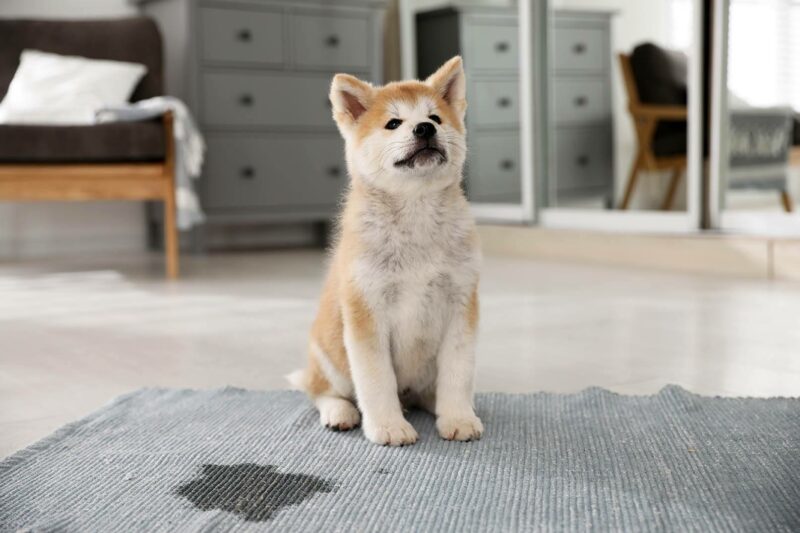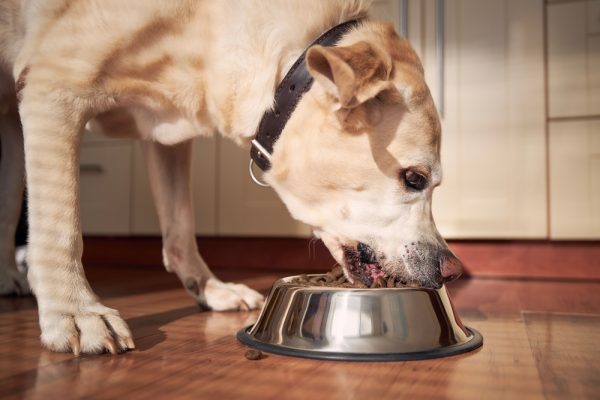Living with a dog in your home is usually a pleasant experience, and you probably look forward to a friendly greeting whenever you return from work or an errand. When your pet urinates indoors, your patience can be tested, but you can help your dog correct the behavior in most circumstances.
Determining why a timid dog pees when scared is the first step to helping the animal return to normal. Before fixing the problem, it’s vital to learn how to react to an indoor accident without worsening the issue. Let’s take a closer look.

How to Handle Urination Problems
After a long day, the last thing you want to see on your carpet is a pool of urine. Containing your anger or disappointment is essential because a heated response can scare your pet even more, and it’s unlikely to solve the problem. Canines have short-term memories, and punishing them for something that happened hours or even minutes earlier is ineffective and inhumane. If you yell at a dog for a previous mess, the animal’s fear will only increase, and they will not understand what they did wrong.
Staying calm and immediately cleaning the mess is the correct response. Use an enzymatic cleaner to eliminate the urine scent so your pet will not be tempted to use the same spot again. If you catch your friend in the act, say “no” firmly, but do not scream or hit the dog. Lead the pup outside to show it the correct location and clean the stain thoroughly when you return. When your dog urinates outside, reward it with a treat instead of making a mess indoors and voice your approval.
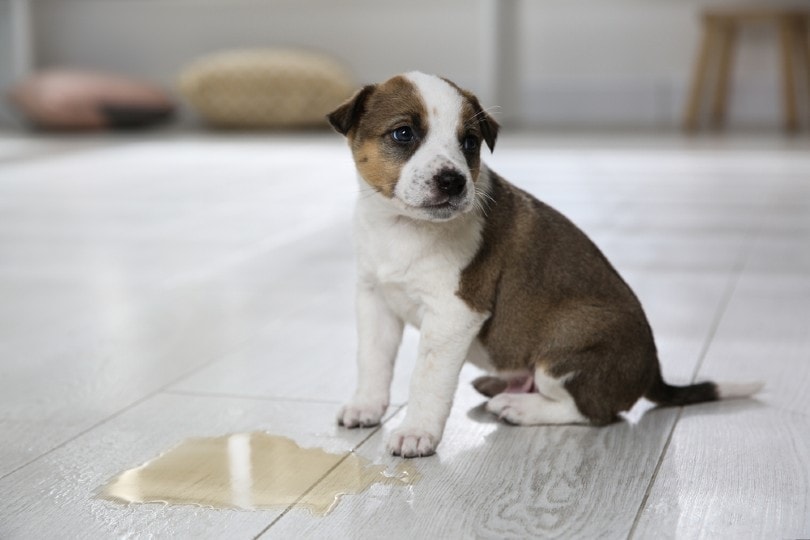

The 5 Reasons Why Your Dog Pees When Scared
1. Potty Training Issues
If you recently adopted a dog that pees inside, the cause may be related to inadequate potty training. The animal will not understand that urinating indoors is wrong until you train it to go outside. Some dogs were raised in less-than-ideal conditions, and animals that have never lived inside may be clueless about bathroom etiquette. Potty training a puppy is usually much easier than teaching an adult, but training an older dog requires the same methods.
How to Remedy the Behavior:
Training an adult dog to pee outside may take weeks or longer, but it’s crucial to remain calm and patient. Positive reinforcement is the preferred method to use during training. When you take the animal outside, give them a treat when they urinate and say, “Good dog!” Respond to indoor accidents firmly, but avoid yelling because it will only frighten a timid dog.
2. Environmental Changes
Moving to a new home or returning from a long trip can be stressful for pets, and some may not feel comfortable in the new environment. Separation anxiety is common with dogs and cats, but some pets take longer to adapt. When the dog’s daily routine is interrupted, the stress can profoundly affect their mental health.
How to Remedy the Behavior:
Try to make your pup feel more comfortable in the new surroundings. Adopting a daily routine with several outdoor breaks, regular feeding times, and play sessions can help the dog adjust. Retraining your pet to urinate outside is essential when the animal suffers from separation anxiety. Try to distract your pet with a toy if they sniff around preparing to pee inside, and immediately take the animal outside. Provide a treat if the pup makes it outside to urinate.
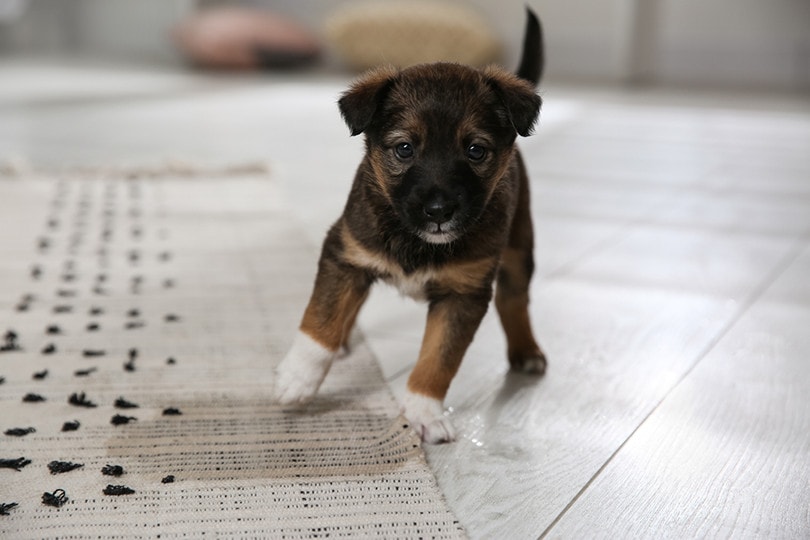
3. Traumatic Experiences
How a canine is raised as a puppy impacts their behavior as an adult, and your dog may be suffering from anxiety caused by a traumatic event or improper training. Although many pet parents assume that a traumatized animal was physically abused as a pup, veterinary behaviorists believe the cause is not always associated with abuse. Improper socialization may also play a role in timid dogs urinating indoors. If the dog is not exposed to children, strangers, car rides, or loud noises as a puppy, they may act frightened when they encounter those situations as an adult.
How to Remedy the Behavior:
Veterinarians suggest using desensitization and counterconditioning to help the dog with trauma. Desensitization involves exposing the animal to the stimuli they fear in a safe atmosphere. If a dog pees when a visitor enters your home, you can ask your guests to avoid greeting the dog enthusiastically when they enter. Keep guests at a distance when they come over, but gradually allow them to get closer to the dog on subsequent visits. When the dog refrains from urinating, you employ counterconditioning by rewarding the dog for good behavior. In extreme cases, traumatized pets may need veterinary behaviorists to prescribe medications to alleviate the fear.
If you need to speak with a vet but can't get to one, head over to PangoVet. It's our online service where you can talk to a vet online and get the advice you need for your pet — all at an affordable price!

4. Submissive Urination
Submissive urination occurs when the dog responds to fear or anxiety, and immediately taking the dog outdoors may not help improve the behavior. Determining the source of the dog’s fear will help you treat the problem and make your dog more comfortable in their home. After you discover the cause, you can work on building the animal’s confidence.
How to Remedy the Behavior:
Confidence building is vital to treating submissive urination, but it also helps to maintain a daily routine to put the animal at ease. Gradually expose the dog to people or other stimuli to make them feel more comfortable around them, and reward your pet when they react without urinating.
For instance, if the dog pees when strangers greet them, ask the people to stay at a distance and refrain from petting the dog on the head. Little by little, you can decrease the distance between the stranger and eventually allow the person to pet the dog. Experts suggest visitors approach from the side and squat down to greet the animal instead of bending over.
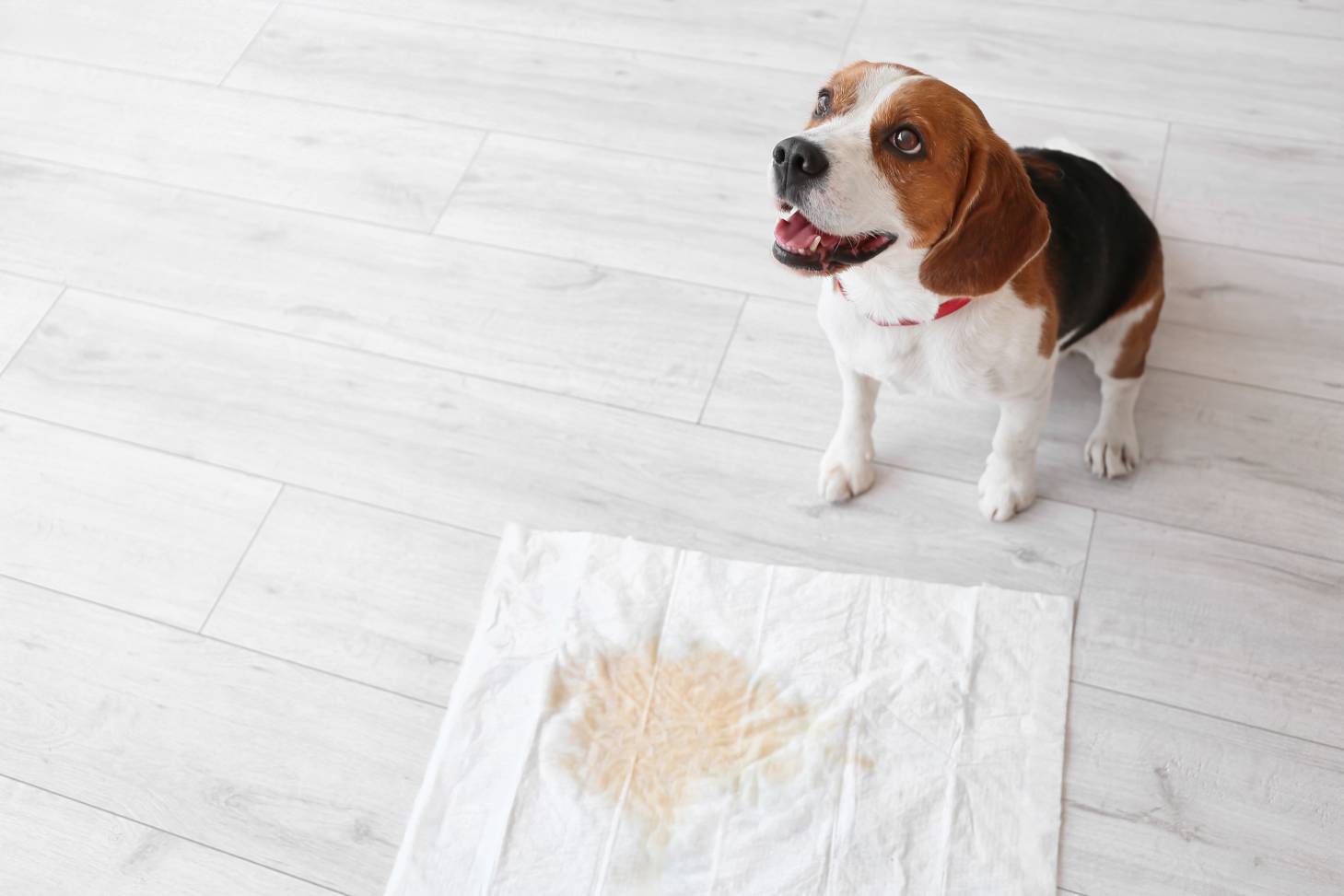
5. Medical Issues
When potty training and confidence building do not seem to help a nervous dog, the problem could be related to a medical issue. Accidents are likely to occur with a puppy, but an adult dog that frequently pees inside needs a complete checkup from a veterinarian. A urinary tract infection is often the cause of indoor urination for adults, but it could also be bladder stones or even a disease like cancer. Senior dogs can also struggle to control their bladders when a cognitive problem prevents them from urinating outside.
How to Remedy the Behavior:
Medical problems causing excessive urination cannot be treated without professional help. A vet will conduct several tests to diagnose the problem and determine the appropriate treatment. Urinary tract infections can often be treated with medication, but serious issues relating to congenital deficiencies, injuries, or disease may require surgery.

Conclusion
Keeping your home urine-free is challenging when you have a timid dog that struggles with fear. However, you can retrain your pet to go outside when the problem is not related to a medical issue. Using confidence-building techniques, establishing a solid daily routine, and slowly exposing the animal to “scary stimuli” can help reduce anxiety. Dogs do not urinate inside out of spite, and a dog suffering from stress must be handled with compassion and love.
See also:
- Your Dog Just Peed On You? Possible Reasons Why (And How To Stop It)
-
How to Keep Your Dog from Peeing on Your Christmas Tree: Vet Approved Tips
Featured Image Credit By: Olimpik, Shutterstock
